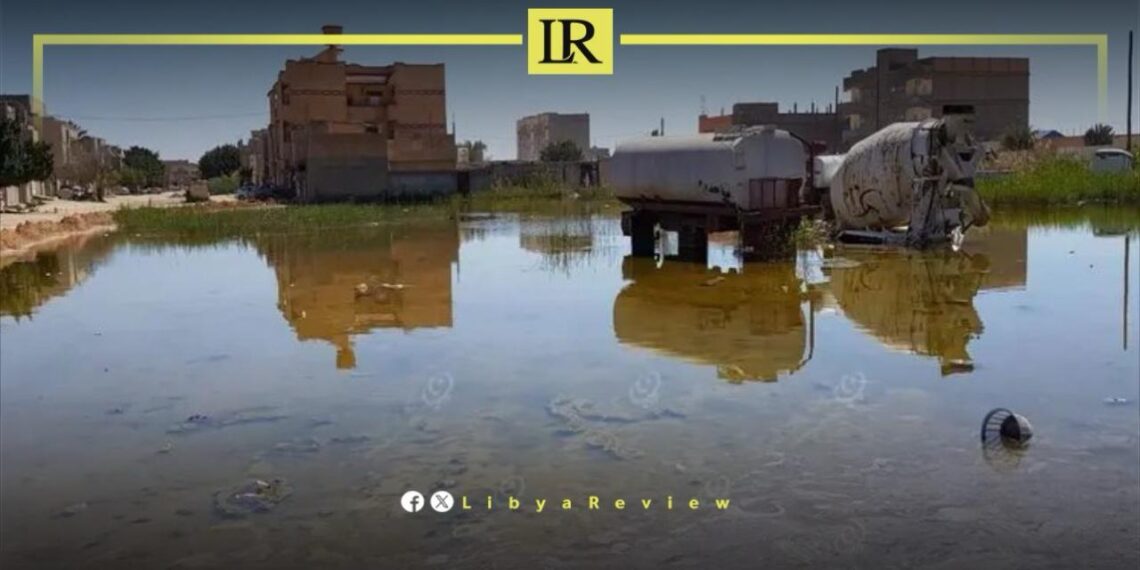The city of Zliten in Libya is facing an environmental emergency as groundwater levels surge, causing significant damage to the ecosystem and residential properties. This increase in groundwater has destroyed the local environment, affecting trees, and wildlife, and leading to a higher number of homes with water damage.
The High Council of State disclosed that the Zliten Environmental and Humanitarian Situation Monitoring Committee has conducted an in-depth examination of the situation. The committee is exploring solutions to mitigate the adverse effects on the city’s natural and residential areas.
The Deputy Prime Minister of the Government of National Unity has directed Hussein Atiya Al-Qatrani, the Minister of Agriculture and Animal Wealth, to assemble a team of experts to evaluate the impact on vegetation and animal life caused by the groundwater rise.
To address the issue, the committee has proposed organizing a workshop focused on exploring the use of surplus groundwater in agriculture. This initiative aims to devise a strategic plan for the development of agriculture and animal wealth, including measures to prevent animal diseases and combat agricultural pests, along with strategies for effective implementation.
The situation in Zliten highlights the challenges posed by environmental changes to both urban and natural settings. Various factors, including excessive irrigation, infrastructure leaks, and climatic variations, can contribute to rising groundwater levels, threatening biodiversity, and agriculture, and causing structural damage to buildings. This leads to agricultural disruption, loss of biodiversity, and potentially displaced residents.
The Zliten Environmental and Humanitarian Situation Monitoring Committee’s proposed measures signify a holistic approach to crisis management. By assessing the damage and considering sustainable water management techniques, Zliten seeks to address the immediate environmental concerns while preparing for future challenges.


